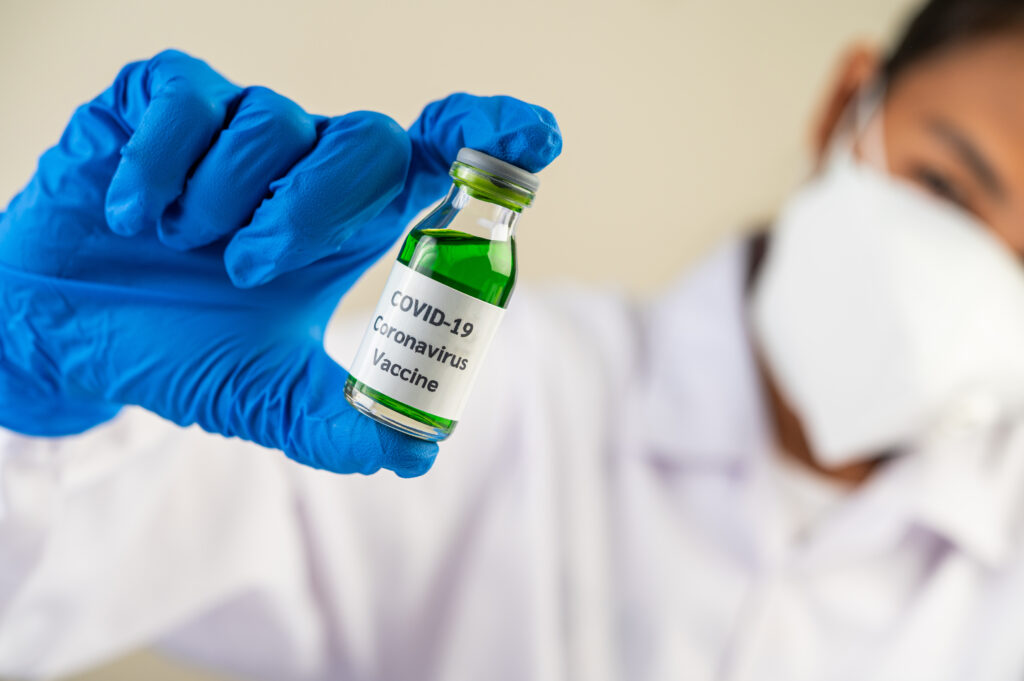In the global race to find effective vaccines against COVID-19, one of the most promising developments has emerged from Brazilian researchers. A new vaccine, developed by a team of scientists in Brazil, has shown significant promise in preclinical trials conducted on mice. The results of these trials could pave the way for future studies in humans and potentially contribute to the global arsenal of vaccines fighting the pandemic. This breakthrough not only demonstrates the ingenuity and resilience of Brazilian science but also underscores the importance of international collaboration in combating COVID-19.
The Development Process for Covid-19: An Overview
The vaccine, dubbed “Coronavac-BR” by its developers, is the result of an extensive research effort involving scientists at various Brazilian universities and institutes. The vaccine is based on a viral vector platform, a method that has gained considerable attention for its effectiveness in providing immunity against infectious diseases.
Brazilian researchers have worked tirelessly to create a vaccine that targets the spike protein of the SARS-CoV-2 virus, which is responsible for causing COVID-19. By using this spike protein as a key target, the vaccine aims to teach the immune system to recognize and combat the virus effectively.
This research is crucial not only for Brazil but also for global vaccine efforts, as it contributes to the diversification of vaccine technologies. Many existing COVID-19 vaccines—such as those developed by Pfizer, Moderna, and AstraZeneca—use messenger RNA (mRNA) or adenovirus vectors. The Brazilian team’s approach offers a different pathway for immunity and adds diversity to the range of tools available to fight the pandemic.
Preclinical Trials in Mice: Early Results and Success

The preclinical trials on mice, conducted under strict laboratory conditions, represent the first step in determining the potential efficacy of the vaccine. Over the course of several months, the researchers administered the vaccine to the mice and monitored their immune responses closely.
The results have been incredibly promising. Mice that received the vaccine showed a strong immune response, producing both neutralizing antibodies and activating T-cells—two key components of the body’s immune defense system. Neutralizing antibodies are essential for preventing the virus from infecting human cells, while T-cells help to destroy infected cells.
More importantly, the vaccinated mice exhibited no significant adverse side effects, suggesting that the vaccine could be safe for human use. The results also indicated that the vaccine was effective at producing a robust immune response, which is crucial for providing long-term protection against the virus.
One of the key aspects of the study was the vaccine’s ability to elicit both humoral (antibody-mediated) and cellular (T-cell-mediated) immunity. A dual immune response is thought to be more effective in protecting against infections, as it provides both short-term and long-term defense mechanisms.
The Role of Brazilian Researchers in Global Vaccine Development
Brazil has become an important player in global vaccine research throughout the pandemic. The country’s scientific community has long been involved in infectious disease research, and their work on the COVID-19 vaccine highlights the nation’s capabilities in biotechnology and public health. Brazil has also made significant contributions to the development of the Oxford-AstraZeneca vaccine, producing it locally under the name “Fiocruz.”
The success of Coronavac-BR is an important step forward for Brazil, as it can potentially make the country more self-sufficient in its vaccine production and distribution. In addition to bolstering national capacity, the development of Coronavac-BR could have far-reaching implications for other nations, particularly in the Global South, where access to vaccines has often been limited.
Brazilian researchers have been keenly aware of the need for equitable vaccine distribution and have expressed their intention to ensure that Coronavac-BR, if proven effective, will be accessible to people in low- and middle-income countries.
Also Read: https://lifescienceinsights360.com/biotech/the-rising-issue-of-human-metapneumovirus-hmpv/
Future Directions: Human Trials and Potential Challenges
While the results of the preclinical trials are promising, it is important to note that the vaccine is still in the early stages of development. The next step will be to conduct clinical trials on humans to evaluate its safety and efficacy in a real-world setting. Human trials are typically conducted in three phases: Phase 1 to assess safety, Phase 2 to evaluate immune response and dosing, and Phase 3 to confirm efficacy and monitor for any rare side effects. These trials will likely take place in multiple countries to ensure a diverse group of participants.
The researchers are optimistic about the next phases of testing. They believe that their vaccine may offer significant advantages over other COVID-19 vaccines on the market, especially in terms of its affordability and ease of storage. The viral vector platform used in Coronavac-BR may allow for easier distribution in regions with limited access to ultra-cold storage facilities, which can be a challenge for mRNA vaccines.
One of the major hurdles for Coronavac-BR, like any new vaccine, will be scaling up production and securing the necessary funding to bring it to market. However, the support of both Brazilian governmental agencies and international health organizations could help overcome these challenges. In addition, the success of the vaccine in preclinical trials could attract additional investment, providing the resources needed to advance the vaccine toward global distribution.
Broader Implications of Covid-19 for Global Health

The promising results from Brazil’s COVID-19 vaccine are more than just a win for the scientific community—they could be a crucial tool in addressing the ongoing pandemic and future outbreaks of infectious diseases. Global vaccine inequity remains one of the biggest challenges in the fight against COVID-19, as many lower-income countries have struggled to obtain enough doses for their populations. A new, affordable vaccine could help bridge this gap, ensuring that vaccines are available to those who need them most.
Moreover, the research into Coronavac-BR could open the door for the development of vaccines against other viral diseases. The platform used by Brazilian scientists could be adapted for a wide variety of pathogens, making it a versatile tool for future disease prevention efforts. In the long term, this research may also contribute to improved preparedness for the next global health crisis.
Conclusion
As the world continues to battle COVID-19, every breakthrough, no matter how small, brings us closer to the end of the pandemic. The results of the Brazilian-developed vaccine in mice trials are a testament to the power of scientific innovation and collaboration. While there is still much work to be done before Coronavac-BR can be administered to humans, the early results are encouraging.
This development adds another layer of hope in the global fight against COVID-19, demonstrating that science knows no borders. With continued support, research, and investment, the Brazilian vaccine could become a key tool in the global effort to end the pandemic and ensure that future outbreaks are met with a swift and effective response.






